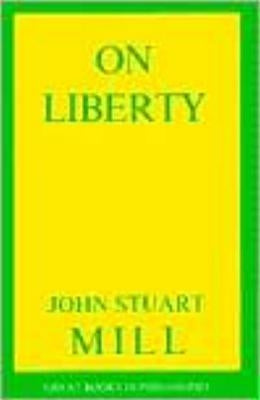1
/
of
1
Prometheus Books
On Liberty
On Liberty
Regular price
€13,95 EUR
Regular price
Sale price
€13,95 EUR
Shipping calculated at checkout.
Quantity
Couldn't load pickup availability
In the rich history of political philosophy, great minds have sought to define the nature and extent of human freedom, with careful justifications offered for the principles proposed. This tradition experienced a heightened degree of enthusiastic intensity upon the publication of On Liberty in England during the nineteenth century. In this, his most powerful essay, John Stuart Mill defends individual liberty against both social and political encroachment, by daring to suggest that lines of demarcation be drawn to outline the proper role of government with respect to individual freedom. Apropriate spheres of action are offered for individuals, society, and the state; basic rules are established to deal with those cases in which human action may need to be restrained or limited. Mill's eloquence and his unwavering dedication to the cause of freedom permeate every page.
Author: John Stuart Mill
Publisher: Prometheus Books
Published: 04/01/1986
Pages: 134
Binding Type: Paperback
Weight: 0.42lbs
Size: 8.52h x 5.49w x 0.35d
ISBN: 9780879753368
Author: John Stuart Mill
Publisher: Prometheus Books
Published: 04/01/1986
Pages: 134
Binding Type: Paperback
Weight: 0.42lbs
Size: 8.52h x 5.49w x 0.35d
ISBN: 9780879753368
About the Author
JOHN STUART MILL was born in London on May 20, 1806, the son of noted Scottish economist and philosopher James Mill, who held an influential post in the powerful East India Company. Mill's natural talent and physical stamina were put to the test at a very young age when he undertook a highly structured and individual-ized upbringing orchestrated by his father, who believed that the mind was a passive receptacle for human experience. His educa-tion and training were so intense that he was reading Greek at the age of three and doing independent writing at six.
Share


